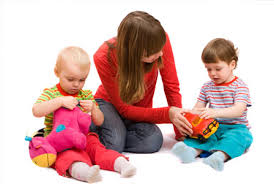Getting to know your host family in Canada
Whilst spending time with your new family you will learn how they live on a day-to- day basis. It is a good idea to ask questions so that you can get a feel for the structure of the family and how they live. If, at the beginning, you feel shy to ask the adults, why not ask the children. School age children are ideal communicators and will be happy to correct you with your English without making you feel self conscious. They are also likely to have more time and patience to spend a lot of time talking to you about all sorts of things. As your confidence grows you can tackle more complicated questions and speak with more adults in your surroundings.
The first conversations are usually of a practical nature. Most families will prepare a handbook for you and this will give you plenty of information. Make sure you read it carefully and ask further questions if you are not sure.
The handbook is designed to give you an overview of the family routine and their expectations of your role within the family. Family life in Canada may appear less structured than in Europe but the family is likely to have a basic daily routine around school start and finish so you will need to be aware of this.
House rules are likely to be part of the handbook. It will explain expectations regarding your personal appearance, hygiene, snacking, chores, phone/internet use, water use, TV watching, noise levels, smoking, drinking and partying. Your host family may also wish to give you some rules regarding socialising whilst you are at their home.
Courtesy is key. Wherever house rules have not been given, please ask if you are unsure, it is courteous and will ultimately allow you more freedom for responsible behaviour. Your host family will think ‘it goes without saying’ that you keep your own room clean and tidy and that you take pride in your appearance, time-keeping and cleanliness for example; as you are going to be the role model for their children!
The au pair agency encourages the host family to prepare a timetable for you. It is important to go through the timetable and ask questions if you are not sure.
It is also a good idea to agree in advance which times you are ‘on duty’ and which times you are invited to join in with family activities on an optional basis. For example, on duty would be ‘please take the children to the beach after school’ and ‘optional’ would be, we are all going to the beach (on Saturday), would you like to come out with us? On/off duty is especially important if the children are not yet in school and you are with a ‘stay-at-home’ mum. When (from what time to what time) are you expected to help and when can you make your own arrangements, for example to go to language classes and/or meet up with friends.
If you feel there is information missing from the handbook, ask questions such as;
Is there a preferred daily routine or schedule for the children?
What time do the children get up in the morning? During the school term? And how about during their holidays?
What time do they have to be taken to school / playgroup? (If applicable.)
Do you have set meal times? If so, what are they? Do the children eat a how meal at school? Take a lunchbox? Should I prepare all/some of these meals?
When do the children have a bath? What products do they use?
What time do the children go to bed? Is there a special routine? (like a bedtime story for example?)





